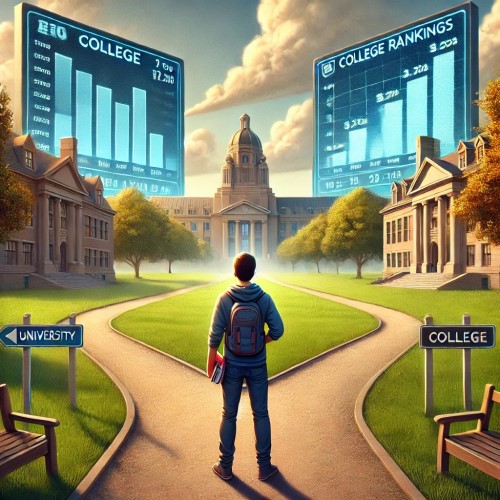U.S. News College Rankings 2024: Why They Spark Controversy and Obsession Every Year

U.S. News College Rankings 2024: Why They Spark Controversy and Obsession Every Year
Every year, the U.S. News & World Report releases its college rankings, and every year, without fail, the same storm brews across campuses and living rooms alike. For some, these rankings are a measure of pride, validation for the years of late-night study sessions and hefty tuition payments. For others, they spark frustration, confusion, or outright fury.
But why do these rankings ignite such intense feelings, and should they hold the power they do?
Why the Obsession?
For students and parents, the U.S. News college rankings serve as a quick reference guide in a process that feels overwhelming. With thousands of colleges and universities across the country, the rankings seem to offer a way to distill complex information into a digestible form. They can help prospective students zero in on institutions that meet their academic and financial needs. After all, selecting a college isn’t just a four-year decision—it’s a life-altering one, with ramifications that stretch into careers, personal growth, and lifelong networks.
The Metrics Behind the Madness
However, not all agree with the ranking methodology. The U.S. News system evaluates colleges based on factors like graduation rates, faculty resources, financial aid, and peer assessments. While these metrics seem objective on the surface, they often favor well-established, wealthier institutions. Critics argue that the rankings reward schools for being exclusive rather than inclusive, emphasizing selectivity and alumni donations over the actual quality of education and student experience.
For example, smaller liberal arts colleges or community colleges—schools that may serve underrepresented populations or provide excellent educational value—often find themselves ranked lower, not because of educational shortcomings but due to limited resources compared to their wealthier counterparts.
A Catalyst for Change?
In recent years, the backlash against these rankings has grown stronger. Some colleges have opted to stop participating, refusing to submit data to U.S. News as a way of rejecting the system. Many point out that these rankings reinforce existing inequalities in higher education, further elevating elite institutions while penalizing schools with smaller endowments.
For instance, in 2022, Columbia University withdrew from the rankings after discrepancies were found in the data it provided. This raised questions about the accuracy of the rankings and fueled ongoing debate over their relevance.
The Emotional Toll
Beyond institutional criticism, the personal toll of these rankings can’t be ignored. For many high school seniors, the pressure to get into a “top-ranked” school can feel all-consuming. The idea that a number on a list could determine their future creates an environment ripe for stress and anxiety. This emphasis on prestige often overlooks the fact that success in life isn’t guaranteed by attending a specific college, but rather by what students make of their time there.
Parents, too, feel the weight of these rankings, sometimes pushing their children toward schools with more prestige rather than ones that may better fit their needs and interests. In this way, the U.S. News rankings feed into a larger cultural obsession with status, pushing the narrative that only the highest-ranked schools are worth attending.
Looking Forward
As more voices question the value of these rankings, the conversation is slowly shifting. While the U.S. News & World Report rankings aren’t going anywhere soon, there’s a growing movement towards alternative ways of evaluating higher education. Resources like College Scorecard from the Department of Education, which focuses on student outcomes and affordability, are gaining traction. More and more families are looking beyond the rankings to find schools that fit the student’s goals, values, and financial situation.
Ultimately, while the U.S. News rankings may provide some insight into the landscape of higher education, they don’t tell the full story. Each student’s journey is unique, and the best college for one person might not be the highest-ranked one. What matters most is finding the place where a student can thrive, grow, and succeed on their own terms.
So as the new rankings drop and the debates flare up again, it’s important to remember: a number on a list doesn’t define you, your education, or your future.
The annual release of the U.S. News college rankings triggers a predictable cycle of excitement, anxiety, and debate. While the rankings offer a sense of order in the chaotic college selection process, they also perpetuate deep-rooted inequalities in the education system. As more institutions and individuals question their value, we may be on the verge of a broader shift in how we assess the true worth of a college education. Until then, the rage and obsession surrounding these rankings will likely continue.




